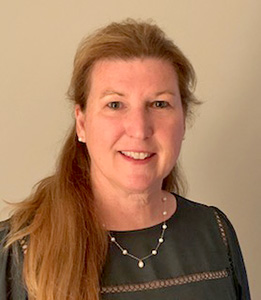According to the Centers for Disease Control and Prevention (CDC), 1 in 54 children has been identified with autism spectrum disorder (CDC, 2020). Since there is no evidence to suggest that the prevalence of ASD will decrease, the need for transitional services, especially those related to employment, has become even greater. Over the next decade, approximately half a million young people on the autism spectrum will transition to adulthood (Demer, 2018), and it is critical that they receive the supports and learn the skills needed in order to do this successfully.

At The Arc Westchester, our Project SEARCH Autism Enhancement Program (PSAE) is a one-year internship program targeted for young adults, ages 18 to 28, with ASD whose goal is competitive employment. PSAE uses the proven curriculum from the original Project SEARCH program at Cincinnati Children’s Hospital Medical Center that has been enhanced by NEXT for AUTISM and UNC TEACCH evidence-based practices in partnership with The Arc Westchester, New York-Presbyterian Hospital, and New York-Presbyterian’s Center for Autism and the Developing Brain.
For an individual with ASD, being employed means integration into a social network, contributing to society, making their own choices and decisions and being less reliant upon publicly funded programs (Roux et al, 2013). But for many individuals with ASD, finding and keeping a job can be difficult, with challenges including navigating the social dynamics of the workplace, coping with sensory overload, organizing and completing tasks, and communicating with coworkers (Roux, Rast, Anderson and Shattuck, 2017). We have found that helping individuals learn the skills needed to be successful in the workplace starts with preparing them for the interview process.
Strong interview skills begin with basic communication skills, and this is something that should be an integral part of any employment training program curriculum. Individuals with ASD may have difficulties with some behaviors related to social skills including eye contact, engaging in reciprocal conversation and responding to another person’s interactions, which can pose a challenge in the work environment (Hendricks, 2010). From day one, it is important to work with individuals on honing these skills, from making small talk in the hallways, to conversing with their peers and staff, to having phone conversations and virtual meetings. Individuals build upon this foundation throughout their training so when it comes time for a formal interview, they are comfortable with the interaction and have had a variety of experiences. It is important to maintain routine practice reviewing topics that are appropriate to discuss at work (sports, the weather, etc.) and what is not, including personal information.
Another tool we have found to be helpful is the creation of a slide presentation that allows participants to visually share more about themselves and the work and training they are doing throughout the program. This presentation uses photos and/or video clips of the individual working throughout the various phases of the program and descriptive captions explaining what they are doing. We have found that our interns with ASD sometimes struggle with open-ended or direct questions, and utilizing the slide presentation provides another avenue for discussion and takes a bit of the pressure off the situation. All of the information from the visual presentation is also included on their resume, which we help them write and update throughout the program.
If using a visual component like the above, it is important to give individuals the opportunity to practice presenting their story prior to any formal interview. This is also something that can be expanded on over time to help increase their confidence. Participants can start with presenting to a member of the staff, then their peers, then familiar faces who they do not interact with every day, but who they know, and so on. Gradually build out that circle, so that when it comes time for them to show the presentation to a potential employer, they are as comfortable as possible.
When there is an opportunity for an individual with ASD to participate in an actual interview, there are several additional steps that can be done to help them prepare. It’s imperative to practice for the formality of a one-on-one interview. While many employers are now conducting interviews over Zoom, it should be stressed that these should be treated the same as an in-person interview and go over what is appropriate to wear for the interview and how to conduct themselves in this virtual format, which may include having a neutral background, learning to mute and unmute their microphone, turning on their camera and refraining from distractions. We have found that many of the interns in our program are more relaxed in the virtual setting. Another great tip is to help job candidates prepare questions for the prospective employer about the job responsibilities and the company. This often impresses the interviewer and shows they are truly invested in the opportunity for employment at that particular business.
Helping individuals learn how to answer questions is also an important skill as they are working towards an in-person interview. For example, if they do not know the answer to a question, let them know it is okay to say, “I don’t know,” but to follow that up with, “But I’ll find out.” This may alleviate some anxiety in the moment while indicating to the interviewer that the question and answer are important.
Another helpful practice is to partner with employers that will allow potential candidates to participate in a “working interview.” This allows the employer to observe the candidate performing the job that they are interviewing for, while allowing the candidate to showcase how they have prepared for the role and their skills. We have found that this type of interview, when possible, has successfully positioned our interns for employment.
One of the most important things I have learned throughout my career is how critical it is to find the right fit for each individual candidate. While preparing them for an interview or a certain role can be similar, everyone has their strengths and something different to bring to the work environment. We work tirelessly with The Arc Westchester’s Supported Employment Program to find the right fit for each intern that completes our program. Finding that right match is so important – that first job may not always be a forever job, but every person deserves to be in a role where they can use their skills and make a difference.

Nancy Fraher
Consideration of individual characteristics including strengths, needs, as well as specific interests, coupled with implementation of proper supports can result in successful and ongoing employment (Hendricks, 2010). As previously mentioned, as more people with ASD transition out of high school and into adult programming such as employment, there is a clear need for programs to help these young adults reach their goals. It is my hope that programs like Project SEARCH are more widely funded and adopted to help individuals with ASD learn the skills needed to find gainful employment in integrated work settings alongside their neurotypical coworkers.
Nancy Fraher is Program Coordinator for Project SEARCH Autism Enhancement at The Arc Westchester.
References
Maenner, MJ, Shaw, Kelly A., Baio, J, et al. Prevalence of Autism Spectrum Disorder Among Children Aged 8. Autism and Developmental Disabilities Monitoring Network. March 2020
Demer, Linda L. The Autism Spectrum: Human Rights Perspectives. Pediatrics: Official Journal of the American Academy of Pediatrics. 2018
Roux, Anne M., Shattuck, Paul T., Cooper, Benjamin P., Anderson, Kristy A., Wagner, Mary and Narendorf, Sarah C. Postsecondary employment experiences among young adults with an autism spectrum disorder. Journal of the American Academy of Child & Adolescent Psychiatry. June 2013.
Roux, Anne M., Rast, Jessica E., Anderson, Kristy A., and Shattuck, Paul T. National Autism Indicators Report: Developmental Disability Services and Outcomes in Adulthood. Philadelphia, PA: Life Course Outcomes Program, A.J. Drexel Autism Institute, Drexel University, 2017.
Hendricks, Dawn. Employment and adults with autism spectrum disorders: Challenges and strategies for success. Journal of Vocational Rehabilitation, 2010.




